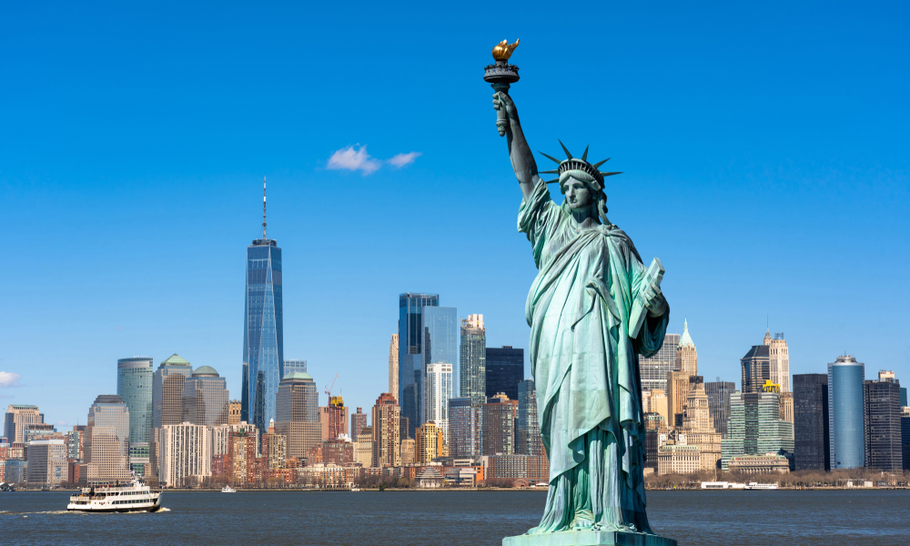American democracy is in rude health. Europeans should take note

(Shutterstock)
Democracy in America has prevailed once again. Even though he has refused to recognise Joe Biden as the President-elect, Donald Trump has not brought his diehard supporters onto the streets, but will challenge aspects of the election process in the courts. That is his right. The implication of his decision, however, is that not even the President is above the law. He must abide by whatever verdict the Supreme Court hands down. This is as it should be. Americans can breathe again. There will be no attempt to overthrow the democratic system and replace it by mob rule.
Here in Europe there has been dismay in some quarters at the drama playing out across the Atlantic over the past week. Heiko Maas, the German Foreign Minister, tweeted three days ago: “What is happening in America does not quite accord with the democratic culture that we know from the USA. It is important that the result should be accepted on all sides. It is easy to be a winner, but sometimes really quite difficult to be a loser.” Fair enough, except that America’s “democratic culture” — unlike Europe’s — has proved robust for more than two centuries. It is easy to congratulate the winner when it’s a liberal Democrat, but sometimes really quite difficult to accept a nationalist Republican. Germans in particular should beware of judging the country that, more than any other, has repeatedly saved them from themselves.
On this day, November 9, 1938, Germans carried out their worst pogrom against their Jewish fellow citizens. Kristallnacht, the “Night of Broken Glass”, happened just 82 years ago. This is still in living memory. It is a day of solemn remembrance in the Federal Republic, as indeed it should be. Even though today is also the anniversary of the fall of the Berlin Wall in 1989, the greatest event in postwar German and perhaps world history, that too is a reminder that East Germany had lived under a dictatorship until that point. This year marks the 40th anniversary of German unification. Before Europeans lecture Americans about their polarised politics, we should recall how recently our continent was divided — far more brutally, in fact. And many of those divisions remain, despite the best efforts of state and society to overcome them. The division that has emerged quite recently between the UK and the EU is by no means unbridgeable, but it is — pace Joe Biden — irreversible. There is no European equivalent of the White House, not is there ever likely to be one.
So the events of the last week in America, tumultuous and at times alarming as they have been, ought not to make Europeans feel smug and superior. On the contrary, we should all feel humbled by the way in which the United States overcomes conflicts that can seem tribal and comes together in the end. Joe Biden was right to claim in his victory speech that there has never been anything that his compatriots have put their minds to that they have not accomplished. America remains a beacon of hope to countless people who live in fear or despair.
And we should never forget that millions of those people live in Europe. There are the stateless refugees and illegal migrants who live on the fringes of our societies. There are the minorities who feel threatened: sometimes by the majority, sometimes by other, larger minorities. Jews, for example, still have to endure racial hatred and terrorist violence in Europe today. Even Britain is not immune to anti-Semitism, as the Labour Party has learned to its cost. What kind of “democratic culture” is it that keeps synagogues, schools and Jewish institutions of all kinds behind blanket security?
In the eastern borderlands of Europe, however, the threat to freedom is even more direct. Belarus languishes under a dictator who has defied mass protests with the help of his Russian patron. The civil war in Ukraine remains frozen, but could reignite at any time. In the Near East the war in Nagorno-Karabakh has recently erupted again, with Azerbaijan claiming victory over Armenia in a bloody war of religion between Muslims and Christians. Greeks and Turks are closer to armed confrontation than at any time since the 1970s. Though these conflicts and others seem remote, they may have repercussions in every European city of any size. On Sunday, motorcades drove around the streets of London celebrating the Azeri capture of Shusha and waving the flag of Azerbaijan. That is one consequence of the diverse, cosmopolitan culture of which we are so proud.
Europe and America remain the two oldest bastions of democracy on earth. Neither has any right to take democracy for granted, still less to condescend to the other. Here at TheArticle we have a deep respect for the United States, even if at times our contributors are critical of its leaders. In recognition of Biden’s triumph, we shall shortly rename the “Trump’s America” exchange. In future, readers who follow US affairs will find our articles — ranging across all aspects of politics, society and culture — in the exchange marked “Democracy in America”. This election has shown that the United States is still the last best hope of humanity. TheArticle will endeavour to do justice to the land described in 1835 by Alexis de Tocqueville in Democracy in America, the greatest account of the United States by a European ever written.
A Message from TheArticle
We are the only publication that’s committed to covering every angle. We have an important contribution to make, one that’s needed now more than ever, and we need your help to continue publishing throughout the pandemic. So please, make a donation.





